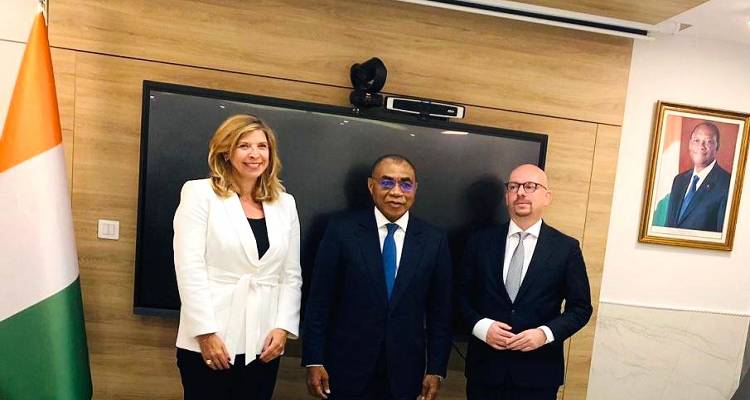A staff team from the International Monetary Fund (IMF), led by Benedict Clements, visited Kenya from 19 February to 2 March 2018, to conduct the 2018 Article IV consultation and discuss about IMF support to Kenya including the authorities’ request for an extension of the current SBA
At the end of the visit, Clements stated, “Kenya’s economy continued to perform well in 2017 despite a severe drought and a prolonged election period. However, real GDP growth is estimated to have slowed to 4.8 per cent for the year as a whole.”
“Growth was mainly supported by public investment spending and solid non-agriculture sector performance. Inflation has declined to below the mid-point of the authorities’ target range, reflecting a substantial decline in food inflation and appropriate monetary policies. Annual headline inflation declined to 4.5 per cent in February from 6.3 per cent in 2016. The banking system has remained stable, and the Central Bank of Kenya (CBK) has continued to strengthen the financial system through its reform program,” Clements added.
“The external current account deficit rose to an estimated 6.4 per cent of GDP in 2017 from 5.2 per cent in 2016, reflecting higher imports, including fuel. The exchange rate has remained stable and foreign exchange reserves have risen to US$7.1bn as of end-January 2018 and are sufficient to withstand any potential near-term external shocks.”
“Discussions focused on macroeconomic policies and reforms aiming at ensuring the sustainability of investment-driven, inclusive growth. Kenya’s medium-term outlook remains favourable, but headwinds from weak credit growth will weigh on economic activity in the near term. With elections over and weather conditions returning towards normal, growth is expected to increase to about five per cent in 2018. Annual growth could rise further to six per cent within a couple of years, provided that the authorities continue economic reforms, including reducing the fiscal deficit and amending interest rate controls.”
“Elevated fiscal deficits in recent years have raised public debt vulnerabilities. The authorities expressed their commitment to significant fiscal adjustments in the coming years that would help address these vulnerabilities and maintain public debt on a sustainable path. To that end, the IMF team and the authorities agreed that a reduction in the fiscal deficit to 7.2 per cent of GDP in 2017/18 and further to 5.7 per cent of GDP in 2018/19, from 8.8 per cent in 2016/17 would be appropriate. This will be achieved by a combination of revenue measures and contained spending.”
The mission welcomed the authorities' plans to accelerate reforms aimed at increasing the efficiency and transparency of public spending, particularly on development spending and safeguarding financial stability by strengthening capital and liquidity positions of banks and microfinance institutions.
Clements further added, “The IMF team urged the authorities to review the interest rate controls introduced in September 2016 with a view to abolishing them or substantially modifying them. The controls have contributed to slow overall credit growth to the private sector, and lower access to credit by SMEs and individuals. In addition, interest rate controls are undermining the effectiveness of monetary policy aimed at ensuring price stability and supporting sustainable economic growth.”






































